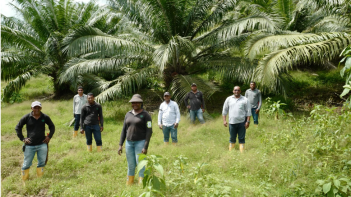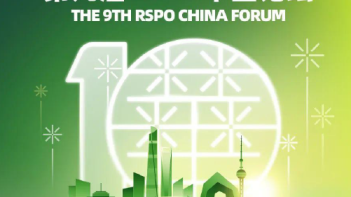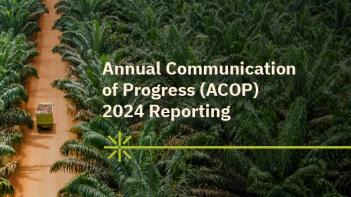Acknowledging that 100% Certified Sustainable Palm Oil (CSPO) production can only be obtained through strong and robust certification schemes such as Segregated (SG) or Identity Preserved (IP) supply chain models, the Mass Balance (MB) model is thereby a good alternative and more affordable way to scale up sustainability.
The MB model allows for mixing of RSPO and non-RSPO certified palm oil at any stage in the supply chain, provided that the overall site quantities are controlled. It currently remains an important part of the volumes of CSPO sold on the market.
With a final target of shifting the industry to physical certification as the most direct and efficient scheme to achieve control over the supply chain, RSPO aims to enhance the robustness of the MB model, both at the plantation and supply chain level, recognising its role as an intermediary way to drive overall industry uptake of CSPO.
As an initial phase, the Secretariat is inviting RSPO members and stakeholders to share their views on the current RSPO Mass Balance model, its associated challenges and opportunities for improvement.
We encourage you to share your views by participating in a short SURVEY (10-15 minutes), and submit it at the latest by 5pm (MYT/ GMT + 8) 8 August 2022:
Keep reading

Call for Expression of Interest: Independent Investigation of a Complaint

Latin American Smallholders, Key Global Brands Gather in Peruvian Amazon to Advance Sustainable Palm Oil

RSPO Forum for Members and Certification Bodies 2025: Strengthening Capacities and Building Bridges with RSPO Members

From Violence to Prosperity: Cultivating Sustainable Palm Oil in San Pablo, Colombia

Palmas de Tumaco: Enduring, Trusting, and Transforming in Colombia’s Pacific Coast
Carry Over Credits for Certified Independent Smallholder Groups

From the Amazon to the Aisles: Discovering Sustainable Palm Oil in the Heart of Peru

Global Trends of Sustainable Palm Oil and China's Pathway




